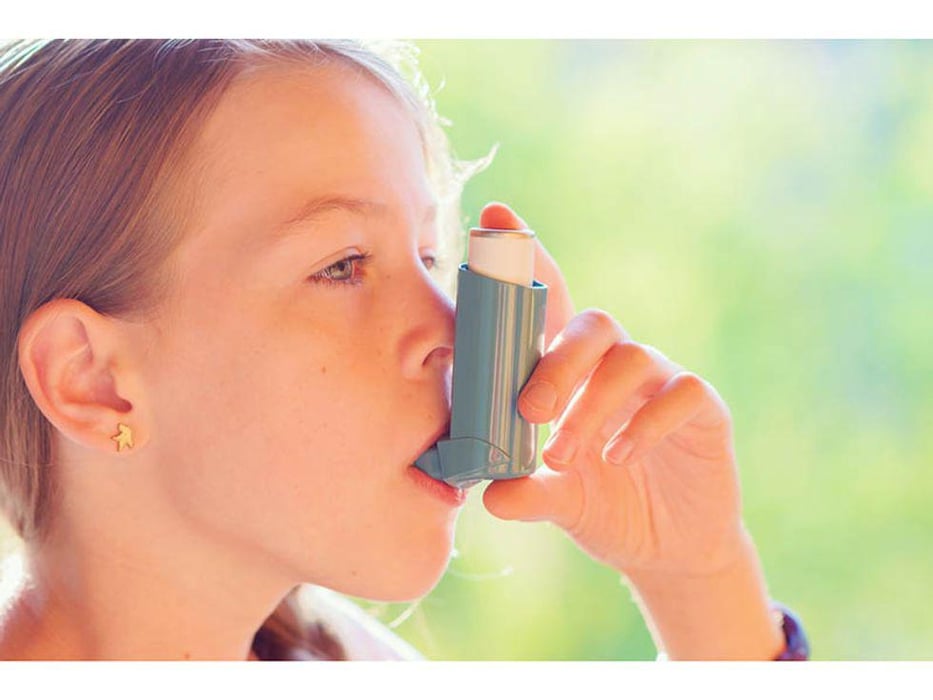RSV in Infancy Could Raise a Child’s Risk for Asthma

TUESDAY, April 25, 2023 (HealthDay News) -- Kids who were infected with respiratory syncytial virus, better known as RSV, in their first year may be at greater risk for asthma, according to researchers.
Their new study looked at the effects of RSV infections of different severities on childhood asthma risk.
“For 60 years investigators have repeatedly identified the link between severe RSV and asthma; however, we’ve shown that this link is explained in part by shared heredity to both severe RSV and asthma,” said senior author Dr. Tina Hartert, director of the Center for Asthma and Environmental Sciences Research at Vanderbilt University in Nashville, Tenn.
“The solution in our study was to understand the link between RSV and asthma by ensuring all RSV infections would be captured using molecular techniques and post-season serology," she said in a university news release.
Nearly all children have been infected with RSV by age 2, the researchers pointed out.
RSV is the leading cause of bronchiolitis, a lower respiratory tract infection with coughing and wheezing in infants and young children.
Symptoms are mild in most kids and usually last a week. However, RSV infection can lead to serious illness and death, especially in premature or very young infants and those with chronic lung disease or congenital heart disease.
RSV is the most common cause of hospitalizations worldwide due to respiratory issues in the first year of life, said first author Dr. Christian Rosas-Salazar, assistant professor of pediatrics at Vanderbilt.
“In our study, among healthy children born at term, not being infected with RSV in the first year of life was associated with a substantially reduced risk of developing childhood asthma, which affects about 8% of the children in the U.S.,” Rosas-Salazar said in the release. “Our findings show an age-dependent association between RSV infection during infancy and childhood asthma.”
He said researchers focused on the first year of life because it is an important period of lung and immune development.
“We believe that when a child is infected with RSV in the first year of life, when the lungs and immune system are still under development, that could lead to certain abnormalities that can later cause asthma,” Rosas-Salazar said.
The study included more than 1,900 healthy infants who were 6 months old or younger at start of RSV season, which is November to March in Tennessee. They were recruited from 11 pediatric practices across Middle Tennessee.
About 54% of infants were infected with RSV in the first year of life, while the remaining 46% were uninfected.
Researchers then checked on the infants annually and evaluated them for asthma at age 5. Infants who weren’t infected with RSV in the first year of life had a 26% lower risk of asthma at age 5, the study found.
“We hope the results of this study motivate long-term follow-up of common respiratory outcomes among children in ongoing clinical trials of RSV prevention products, including vaccines and monoclonal antibodies that can decrease the severity of the infection,” Rosas-Salazar said.
“Showing efficacy of RSV vaccines against childhood asthma would increase public health interest and vaccine uptake,” Hartert added.
Study results were recently published in The Lancet.
More information
The U.S. Centers for Disease Control and Prevention has more on RSV.
SOURCE: Vanderbilt University Medical Center, news release, April 24, 2023
Related Posts
Children’s Use of Helmets Low During Sledding
TUESDAY, Jan. 25, 2022 (HealthDay News) -- Only one in three parents report...
Meat-Heavy Diets Might Have Link to MS
TUESDAY, Feb. 1, 2022 (HealthDay News) -- If you eat a lot of meat, you may be...
How Worried Should You Be About New Reports on Polio?
MONDAY, Aug. 15, 2022 (HealthDay News) -- Poliovirus detected in New York City...
